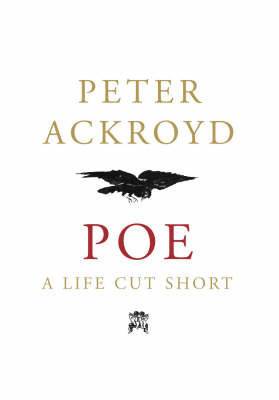

Poe: A Life Cut Short
by Peter Ackroyd
Edgar Allan Poe served as a soldier and began his literary career composing verses modelled on Byron; soon he was trying out his 'prose-tales' - often horror melodramas such as The Fall of the House of Usher. As editor of the Literary Messenger he was influential among critics and writers of the American South. His versatile writings - including, for example, The Murders in the Rue Morgue and The Raven - continue to resonate down the centuries. Peter Ackroyd's biography of Poe opens with his end, his final days - no one knows what happened between the time when friends saw him off on the steam-boat to Baltimore and his discovery six days later dying in a tavern. This mystery sets the scene for a short life packed with drama and tragedy (drink and poverty) combined with extraordinary brilliance. Poe has been claimed as the forerunner of modern fantasy, and credited with the invention of psychological dramas (long before Freud), science fiction (before H.G. Wells and Jules Verne) and the detective story (before Arthur Conan Doyle). Tennyson described him as 'the most original genius that America has produced'. He influenced European romanticism and was the harbinger of both Symbolism and Surrealism. Peter Ackroyd, who places significance on Poe's childhood (his travelling actor parents were miserably poor, his mother had TB and he was orphaned), claims that Poe found his family among writers - writers not only of his time but of the future generations who were influenced by the power of his imagination.
Release Date:
February 6, 2008

